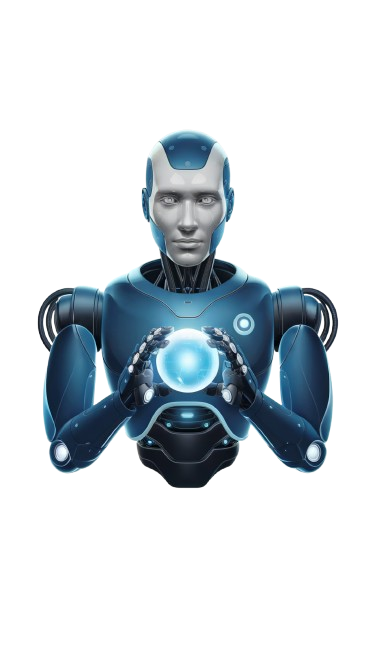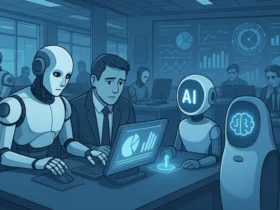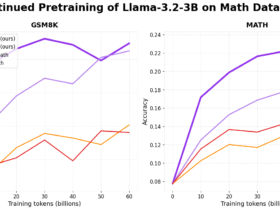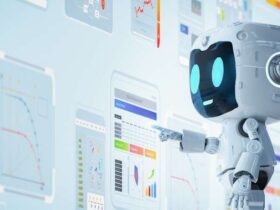
The question of whether AI will ever be smarter than humans is both fascinating and complex, touching on areas of computer science, philosophy, and ethics. “Smarter” can be understood in many ways, depending on the context: problem-solving abilities, creativity, emotional intelligence, or the ability to learn and adapt to new situations, among others. Here’s a breakdown of key considerations:
Advancements in AI
-
Specialized vs. General Intelligence: AI has already surpassed human abilities in specific areas such as playing chess, diagnosing certain medical conditions, and processing large datasets more rapidly and accurately than humans. However, these are examples of narrow or specialized AI, designed to perform specific tasks.
-
AGI (Artificial General Intelligence): AGI refers to a hypothetical AI that can understand, learn, and apply its intelligence broadly and flexibly, much like a human. While many experts are working towards this goal, AGI has not yet been achieved, and predictions about its development range widely.
Challenges and Ethical Considerations
-
Complexity of Human Intelligence: Human intelligence is not just about raw computational power; it involves creativity, emotional depth, moral judgment, and the ability to navigate complex social dynamics. Replicating or surpassing the full spectrum of human intelligence presents profound challenges.
-
Ethical and Safety Concerns: The development of AI that equals or exceeds human intelligence raises significant ethical questions. These include concerns about autonomy, the potential for misuse, the impact on employment, and the importance of ensuring AI aligns with human values and ethics.
Predictions and Speculations
-
Expert Opinions Vary: Some experts believe that AGI could be developed within the next few decades, while others are more skeptical about the timeline or the feasibility itself. The development of AGI, much less superintelligent AI, involves overcoming significant technical and ethical hurdles.
-
Technological Uncertainty: The pace of AI development is unpredictable. Breakthroughs could accelerate the arrival of AGI, or unforeseen challenges could delay it indefinitely.
Whether AI will ever be “smarter” than humans in a general sense remains an open question. It hinges on complex and evolving understandings of both intelligence and technology. As AI continues to develop, ongoing dialogue among scientists, ethicists, policymakers, and the public will be crucial to navigating the future of AI in a way that benefits humanity.
What advancements in AI that are needed for AIs to become smarter than humans?
For AI to become smarter than humans in a broad, general sense—achieving what is known as Artificial General Intelligence (AGI) and potentially surpassing human intelligence—several significant advancements are required. These advancements span technological, theoretical, and ethical domains:
1. Understanding and Modeling Human Intelligence
-
Cognitive Modeling: Developing AI that can rival or surpass human intelligence requires a deeper understanding of human cognition itself. This includes how we process information, make decisions, and learn from experiences. Progress in cognitive science and neuroscience could provide insights necessary for advancing AI.
-
Emotional and Social Intelligence: For AI to truly be considered as smart or smarter than humans, it would need to possess emotional and social intelligence. This means understanding and interpreting human emotions, social cues, and cultural contexts, which are complex and nuanced.
2. Advanced Machine Learning Techniques
-
Learning Efficiency: Human beings are capable of learning from very few examples or even a single example, unlike most current AI systems that require large datasets. Developing algorithms that can learn efficiently from fewer examples is crucial.
-
Generalization and Adaptability: AI must be able to generalize learning from one domain to another and adapt to new and unseen situations without explicit reprogramming. This involves advancements in transfer learning, meta-learning, and other forms of learning flexibility.
3. Autonomous Reasoning and Problem Solving
-
Complex Decision Making: AI needs to be capable of making decisions in complex, ambiguous situations where data may be incomplete or misleading, mirroring human decision-making processes.
-
Creative and Strategic Thinking: Beyond just solving problems, AI would need to demonstrate creativity and the ability to innovate, coming up with new ideas and strategies that have not been preprogrammed.
4. Ethical and Value Alignment
-
Ethical Reasoning: Developing AI that can navigate ethical dilemmas and align its decisions with human values is a significant challenge. This requires not just technical advancements but a deep engagement with philosophy and ethics.
-
Safety and Control: Ensuring that advanced AI systems are safe and remain under human control is crucial. This includes solving the “alignment problem,” ensuring AI goals are aligned with human goals and values.
5. Computational Resources and Infrastructure
-
Processing Power: The computational requirements for AGI are expected to be substantial. Continued advancements in hardware, including quantum computing, may be necessary to support the complex processing and massive data requirements of AGI.
-
Data and Privacy: Developing AI that learns from human-like experiences requires vast amounts of data, raising significant concerns about privacy, data security, and the ethical use of information.
The path to creating AI that can match or exceed human intelligence in a general sense involves not only technical innovations but also deep philosophical and ethical considerations. It requires an interdisciplinary approach, drawing on insights from computer science, cognitive science, neuroscience, philosophy, and many other fields. Achieving AGI and beyond will likely be one of the most challenging and transformative endeavors in human history, with profound implications for society.
How long will it likely take for AI to become smarter than humans?
Predicting how long it will take for AI to become smarter than humans involves significant uncertainty and varies greatly among experts in the field. The timeline for achieving Artificial General Intelligence (AGI), where AI would match or surpass human intelligence across a broad range of tasks, is particularly speculative. Factors influencing these predictions include technological breakthroughs, funding, ethical considerations, and societal impact. Here’s an overview of different perspectives:
Optimistic Estimates
Some technologists and futurists predict that AGI could be achieved within the next few decades. For instance, Ray Kurzweil, a well-known futurist and Director of Engineering at Google, has suggested that AGI could be achieved by 2029, with the subsequent potential for AI to surpass human intelligence shortly thereafter. Such optimistic forecasts often hinge on the rapid pace of current advancements in machine learning and computational power.
Pessimistic or Cautious Estimates
Other experts are more cautious, suggesting that AGI might not be achieved for many decades, if at all. This perspective is grounded in the immense complexity of human intelligence and the significant technical and ethical challenges that remain unsolved. Concerns about the potential risks of AGI also motivate some to advocate for a slower, more deliberate approach to its development.
Surveys Among AI Researchers
Surveys among AI researchers reveal a wide range of predictions. A survey conducted by AI Impacts in 2016 reported a median estimate of 2040 to 2050 for AGI, with considerable variance among respondents. Similarly, a survey presented at the 2016 Puerto Rico AI conference found a 50% chance of AGI occurring by 2050. However, these surveys also show that predictions vary widely, reflecting the high level of uncertainty in the field.
The Role of Breakthroughs
The timeline could be significantly influenced by unforeseen breakthroughs in AI research or computational technology (such as quantum computing). Similarly, regulatory actions, ethical considerations, or major societal concerns could slow down progress towards AGI.
While there’s no consensus on when AI will become smarter than humans, the range of expert predictions suggests it is a possibility within this century. However, this remains speculative, and the actual timeline will depend on a myriad of factors, including technological breakthroughs, societal attitudes, and regulatory frameworks. The development of AI smarter than humans not only poses a technical challenge but also raises profound ethical and societal questions that humanity will need to navigate carefully.












